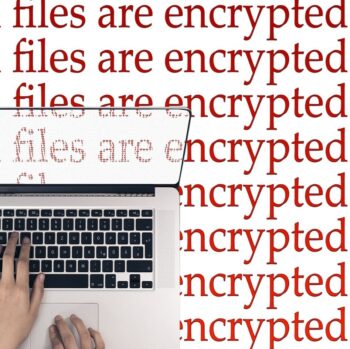
Money gone, data gone: Every second person in Germany pays ransom after a ransomware attack - and does not receive data back. Kaspersky study: The greatest willingness to pay ransom is shown by 35 to 44 year olds worldwide, the least by the 55 plus generation. This is how you unconsciously finance further attacks.
How do consumers deal with ransomware blackmail attempts? What ransom sums are you willing to pay and will you actually get your data back? A global Kaspersky study, in which around 1.000 people in Germany were interviewed, answered these questions: According to this, 52 percent in this country have already paid ransom as a result of a ransomware attack. Of these, however, only half (47 percent) of those affected subsequently had access to their data again. The Kaspersky experts generally advise against ransom payments; instead, the incidents should be reported.
Willingness to pay ransom depending on age
Cyber criminals use ransomware to encrypt access to the compromised device or the files stored there. They then demand a ransom with the promise that the block will be lifted after payment has been made.
The current Kaspersky study "Consumer appetite versus action: The state of data privacy amid growing digital dependency" shows that the willingness to pay ransom depends on the age of those affected worldwide. The 65 to 35 year olds show the greatest willingness with 44 percent, the least willingness (11 percent) is in the 55 plus generation. On average around the world, 56 percent of all those affected agree to the payment of ransom.
Almost 30 percent can restore data
Regardless of whether they paid or not, only 9 percent (29 percent worldwide) of those affected in Germany were able to restore all of their encrypted or locked files after an attack. 22 percent (18 percent worldwide) lost a few files, 48 percent (32 percent globally) lost a significant amount, and 16 percent (13 percent worldwide) who experienced such an incident lost almost all of their data.
"Our figures show a high level of willingness on the part of private users to make ransom payments over the past twelve months," explains Marina Titova, Head of Consumer Product Marketing at Kaspersky. “But handing over the money is no guarantee that the data will be returned; it even encourages cyber criminals to continue their practices. We therefore generally recommend that anyone affected by ransomware not pay, as a payment only fuels this criminal scam. Instead, private users should invest in the protection and security of their devices right from the start and regularly make backup copies of all data. This makes such attacks less attractive or lucrative for cyber criminals. Blackmail attempts will then be reduced and the future will be safer for all Internet users. "
Ransomware: sensitize employees in the home office
In the past few months, 7 percent of those surveyed in Germany knew ransomware victims in their personal environment, and a further 20 percent found out about them through the media. With a view to the increase in home offices, it is important that awareness of the risk of falling victim to a ransomware attack increases. To better protect themselves, consumers need to learn more about this form of cyber attack. They need to know what to look out for and what to do when they encounter ransomware.
Directly to the PDF of the study at Kaspersky.com
About Kaspersky Kaspersky is an international cybersecurity company founded in 1997. Kaspersky's in-depth threat intelligence and security expertise serve as the basis for innovative security solutions and services to protect companies, critical infrastructures, governments and private users worldwide. The company's comprehensive security portfolio includes leading endpoint protection as well as a range of specialized security solutions and services to defend against complex and evolving cyber threats. Kaspersky technologies protect over 400 million users and 250.000 corporate customers. More information about Kaspersky can be found at www.kaspersky.com/
